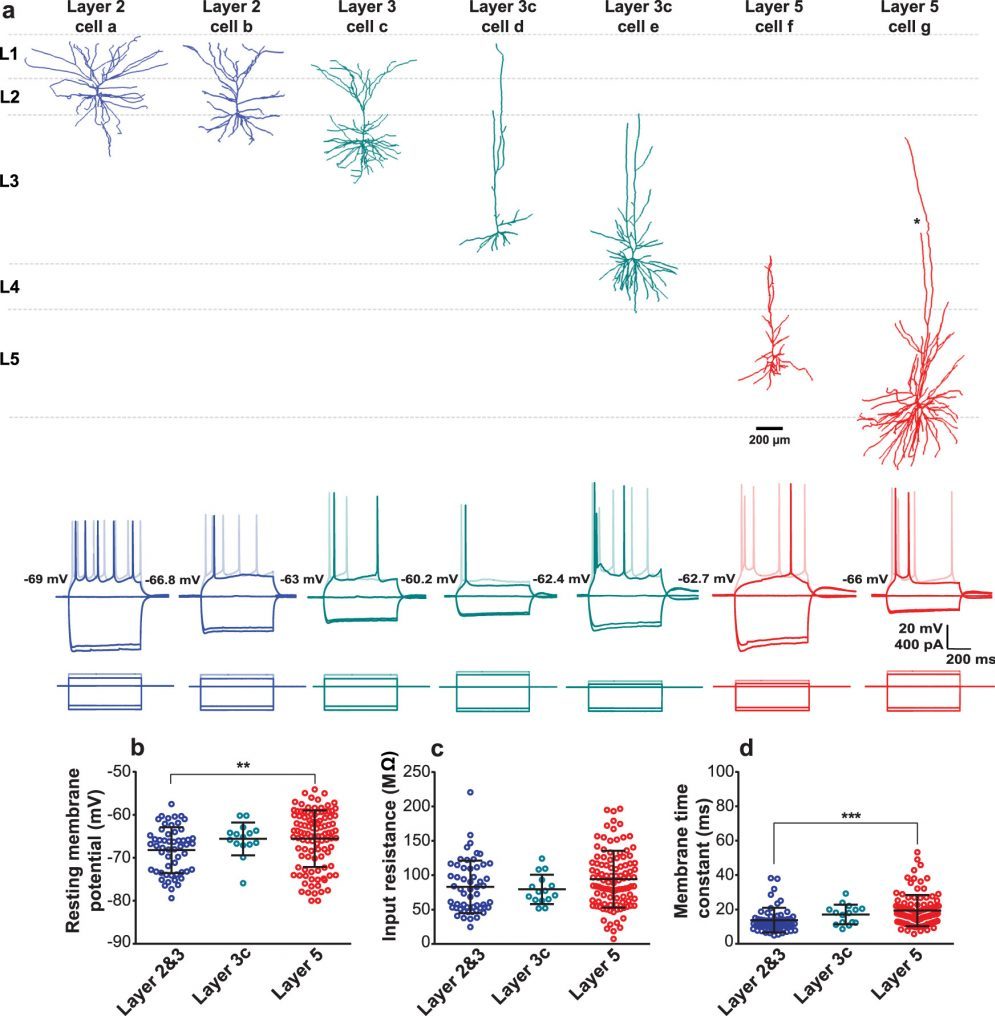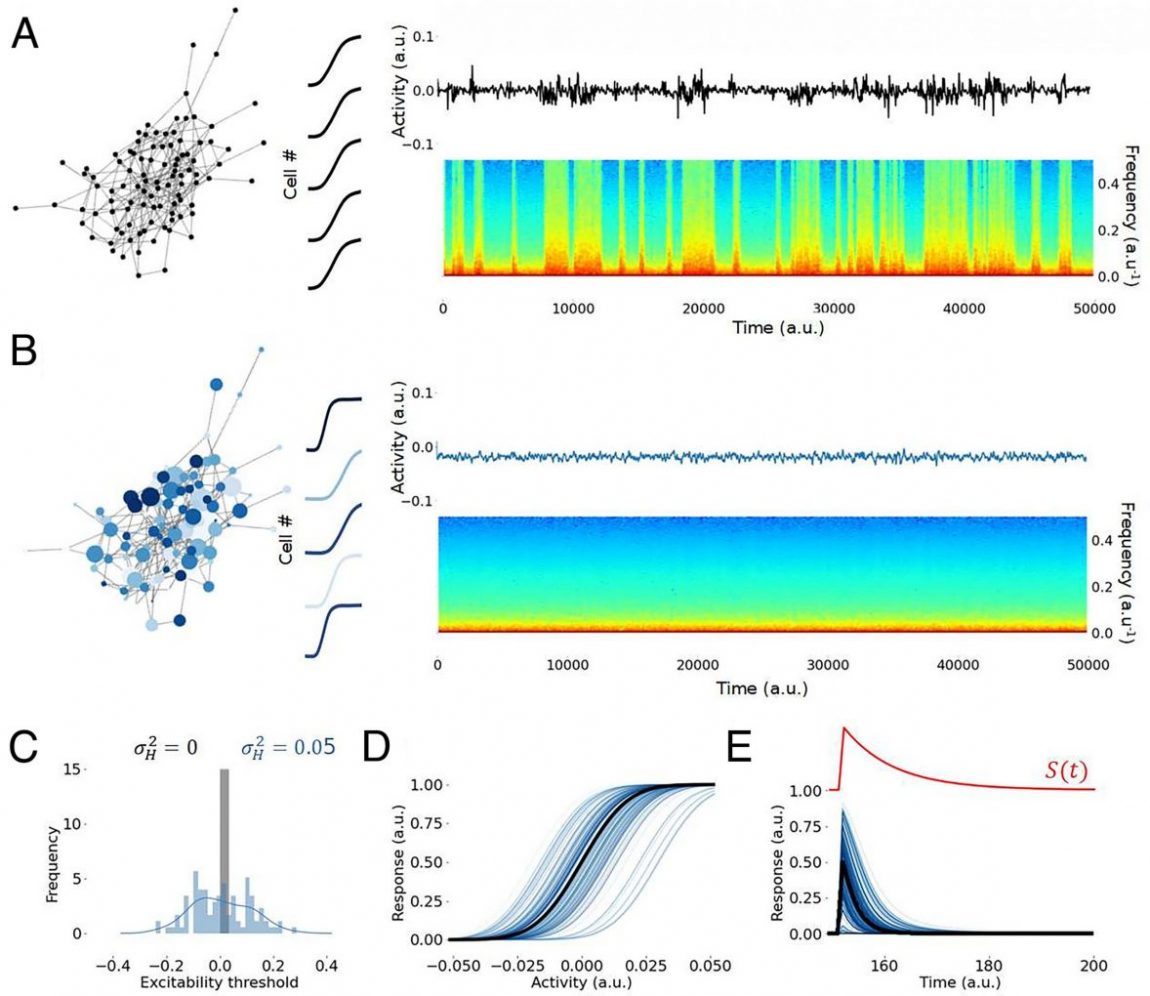Welcome to the Rich Lab!
The Rich Lab uses computational neuroscience in research centered on a fundamental question: How does the brain benefit from biophysical variability at the level of neurons and microcircuits?
The lab utilizes a wealth of tools from computational neuroscience, including the creation of biophysically detailed models of individual neurons, the study of in silico neuronal microcircuits, and mathematical analysis of more abstract models of large-scale brain activity, in this endeavor. This research is focused on understanding of how experimentally characterized sources of heterogeneity in the brain contribute to physiologically relevant brain function and, conversely, how observed disruptions to this variability might promote a range of neuropathologies.
Contact Us
| Phone: | (860) 486-2646 |
|---|---|
| E-mail: | scott.rich@uconn.edu |
| Address: | Torrey Life Science, Rm 110A 75 North Eagleville Road Storrs, CT, 06269-3156 |


